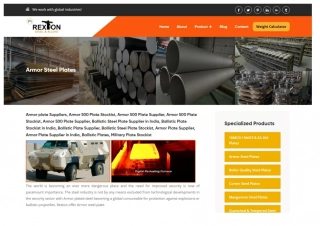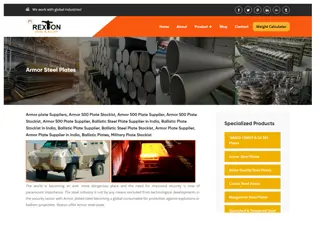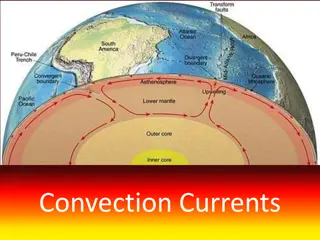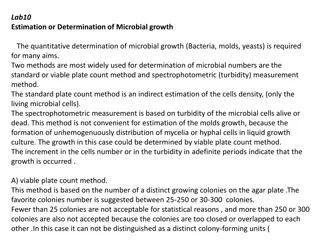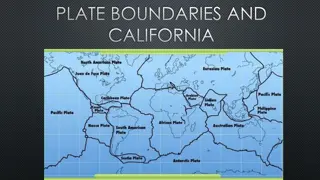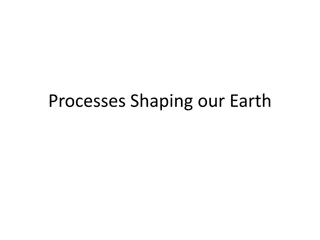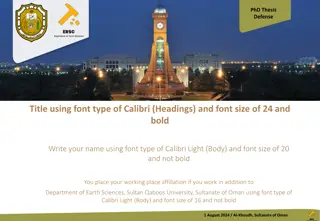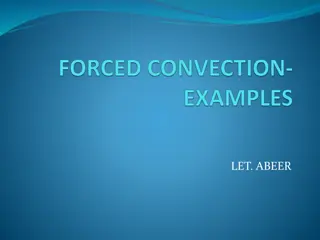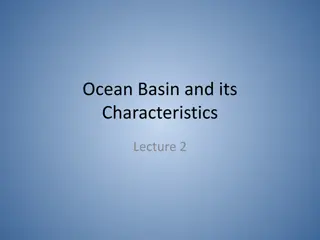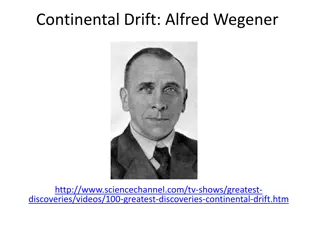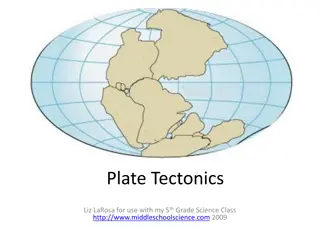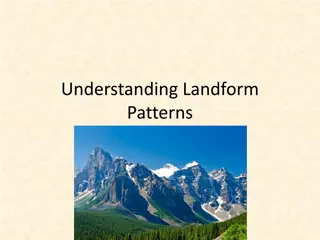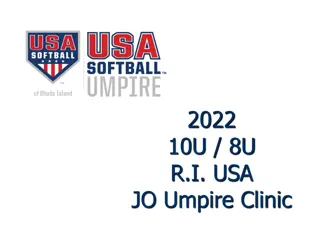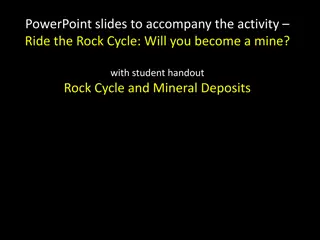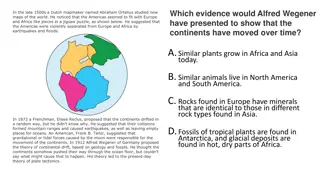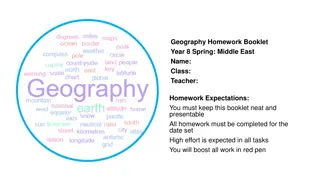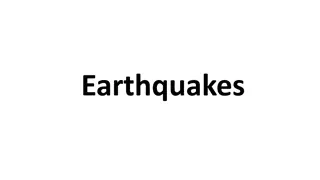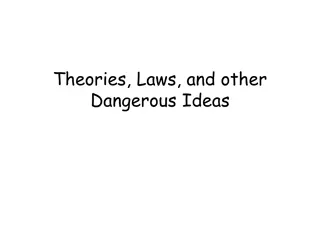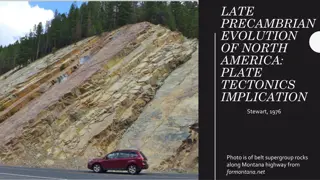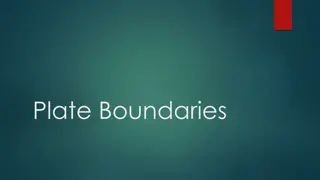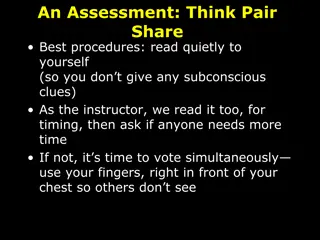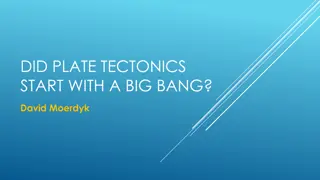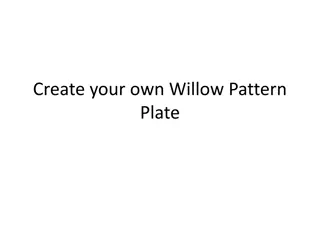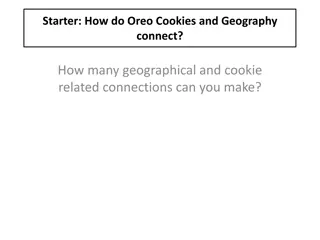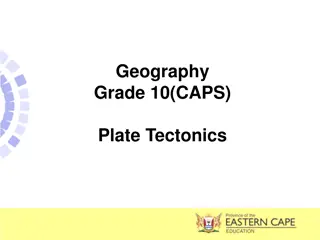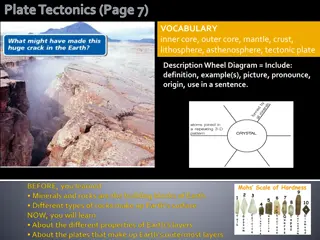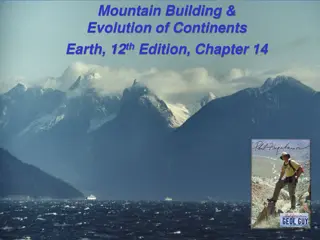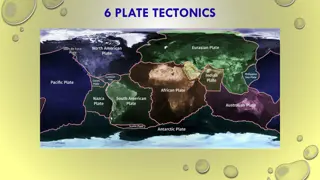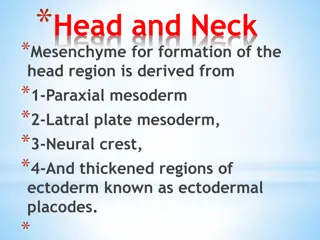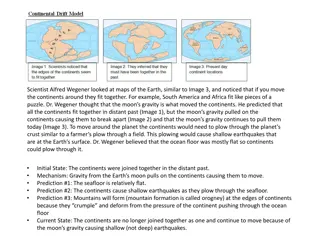400 BHN Plates, Steel 400 BHN Plates, 400 BHN, Wear Resistent 400BHN Steel Plate
Rexton Steel & Alloys is the largest manufacturer and suppliers of 400 BHN Abrasion Resistant Steel Plate, 400 BHN Plate, BHN 400 Steel Plate, Hardox 400 Plates in Mumbai, India.
4 views • 7 slides
Armor Steel Plates
Rexton Steel & Alloys is one of the top leading Supplier, Manufacturer and Exporter of Armor Steel Plates, Armor 500 Plate, Armor Plate, Ballistic Steel Plate, Ballistic Plates, Military Plate, Armor Steel Plate at low prices to our clients from Mumbai, India.
2 views • 6 slides
Geology of Ogun State, Nigeria: Insights and Implications
The geology of Ogun State in southwestern Nigeria, particularly within the Dahomey or Benin Basin, holds significant value for understanding the region's origins and geological evolution. This includes insights on sedimentary basins, the Wilson Cycle, and the unique characteristics of the Dahomey or
3 views • 35 slides
Armor Steel Plates, Armor 500 Plate, Armor Plate, Ballistic Steel Plate, Ballist
Rexton Steel & Alloys is one of the top leading Supplier, Manufacturer and Exporter of Armor Steel Plates, Armor 500 Plate, Armor Plate, Ballistic Steel Plate, Ballistic Plates, Military Plate, Armor Steel Plate at low prices to our clients from Mumbai, India.
1 views • 6 slides
Understanding Plate Tectonics: Meaning, Concepts, and Plate Margins
Plate tectonics is a scientific theory explaining the movement of Earth's lithospheric plates. Developed by various scientists, it involves the drifting of plates over the Earth's surface, leading to phenomena like earthquakes and mountain formation. The theory is based on continental drift and sea-
5 views • 7 slides
Understanding Convection Currents in Earth's Systems
Convection currents refer to the movement of heat by fluids like liquids and gases, transferring heat from one place to another. They play a significant role in the geosphere, atmosphere, and hydrosphere of the Earth, influencing phenomena such as plate tectonics, winds, and ocean currents. In the g
0 views • 12 slides
Methods for Determination of Microbial Growth
Quantitative determination of microbial growth is crucial for various purposes, with two commonly used methods being the standard plate count and spectrophotometric measurement. The standard plate count method estimates living microbial cell density, while spectrophotometric measurement relies on tu
2 views • 6 slides
Plate Boundaries and Geological Events in California
California is located on a plate boundary experiencing major geologic events. The state's landforms are shaped by plate tectonic activity. Understanding stress types at plate boundaries can help prevent damage and save lives. The interaction at plate boundaries plays a crucial role in shaping Earth'
0 views • 14 slides
Understanding Processes Shaping Earth: Lithosphere, Plate Tectonics, and Effects
Explore the components of our planet, such as the lithosphere, hydrosphere, atmosphere, and biosphere. Learn how the lithosphere, consisting of the Earth's crust and top solid mantle, interacts through plate tectonics, causing movements that shape the Earth's surface. Discover the concept of Pangaea
0 views • 31 slides
PhD Thesis Defense - Tectonics and Stratigraphy Study in Earth Sciences
This PhD thesis defense focuses on tectonics, stratigraphy, and depositional environments in Earth Sciences, specifically in the Sultanate of Oman. The research background, objectives, study area, dataset, methodology, and preliminary results will be presented and interpreted. The main objective is
0 views • 10 slides
Heat Transfer and Drag Force Calculation for Air Flowing over a Heated Flat Plate
Calculating the heat transferred and drag force exerted on the first 40 cm of a flat plate when air at 27°C and 1 atm flows over it at 2 m/s. The plate is heated to 60°C along its entire length. Using fluid friction analogy to analyze the heat transfer and drag force.
3 views • 8 slides
Visualizing Relationships with Data: Earthquakes, Volcanoes, and Plate Tectonics
Explore the locations of earthquakes and volcanoes to understand plate boundary zones, compare plate motion in different regions, and determine plate boundary zones using various data sources. Follow step-by-step instructions to study maps, analyze earthquake and volcano distributions, and engage in
0 views • 37 slides
Understanding Ocean Basins and Their Characteristics
Ocean basins are vast submarine regions that cover a significant portion of the Earth's surface, hosting the majority of the planet's water. These basins exhibit various features such as ocean ridges, deep-sea trenches, and seismic ridges. The ocean floor is constantly evolving due to plate tectonic
0 views • 18 slides
Comprehensive AP Environmental Science Study Guide
Covering a wide range of topics including Earth Systems and Resources, The Living World, Population, Land and Water Use, Energy Resources and Consumption, Pollution, and Global Change, this study guide provides detailed information on geologic time scales, plate tectonics, atmospheric composition, w
0 views • 168 slides
Plate Tectonics: Evolution of the Earth
Explore the dynamic process of plate tectonics shaping the Earth's crust through the movement of tectonic plates, subduction zones, divergent and convergent boundaries. Discover how seafloor spreading creates new oceanic crust, and learn about the geological features formed by these processes.
0 views • 25 slides
The Theory of Continental Drift: Alfred Wegener and Pangaea
Alfred Wegener proposed the theory of continental drift, suggesting that the continents were once part of a single landmass called Pangaea. Evidence such as fossils and rock formations on different continents supports this theory. The concept of plate tectonics further explains the movement of conti
0 views • 6 slides
Exploring Plate Tectonics and Earth's Structure for 5th Grade Science
Delve into the world of plate tectonics with a focus on Earth's layers, crust, mantle, and core. Understand how tectonic plates move and learn about continental drift and the concept of Pangea. Explore evidence of Pangea, sea floor spreading, and the fascinating geological processes that shape our p
0 views • 23 slides
Unveiling Earth's Landform Patterns Through History
Explore the fascinating journey of Earth's landforms, from the formation of continents to the theory of Plate Tectonics. Delve into the rich history of geology, uncovering insights from notable scientists like James Hutton and Alfred Wegener. Witness the dynamic processes of earthquakes, volcanoes,
0 views • 52 slides
Umpire Clinic Essentials: What to Wear, Game Time Tips, and Plate Mechanics
Learn key takeaways from a baseball umpire clinic, including guidelines on attire, preparation, game time procedures, plate mechanics, and dealing with coaches and fans. Discover the importance of appearance, proper equipment, and essential plate umpire movements for different game scenarios.
0 views • 61 slides
Exploring the Intricacies of the Rock Cycle Through Interactive Activities
Dive into the fascinating world of rocks and minerals with the engaging activity "Ride the Rock Cycle: Will you become a mine?" This game-based approach allows students to visualize and comprehend the complexity of the rock cycle, appreciate plate tectonics, understand the rarity of economically val
0 views • 16 slides
Understanding Plate Tectonics and Earth's Crust
Explore the differences between oceanic and continental crust, the distinctions of lithosphere and asthenosphere, the dynamics of convergent and divergent boundaries, as well as the concepts of folding and faulting in geological formations. Delve into the characteristics of oceanic crust versus ocea
0 views • 10 slides
Understanding Earth's Structure and Continental Drift Theories
Dutch mapmaker Abraham Ortelius noted the jigsaw fit of continents, leading to the theory of continental drift. Alfred Wegener proposed the movement of continents based on geological evidence, influencing plate tectonics theory. Earth's layers vary from the thick mantle to the solid inner core due t
0 views • 27 slides
Geography Homework: Exploring the Middle East in Year 8
Explore the captivating world region of the Middle East in this Year 8 geography homework booklet. From matching capitals to countries and understanding the importance of diversification, to delving into the physical geography, climate, and population changes of the region, this booklet offers a com
0 views • 15 slides
Understanding Earthquakes and Seismic Waves
This lecture delves into the nature and origin of earthquakes, discussing seismic waves, measurement techniques, effects of earthquakes on various Earth systems, and the relationship between earthquakes and plate tectonics. The content touches on topics like the impact of earthquakes on biosphere, h
0 views • 34 slides
The Theory of Plate Tectonics: Continents in Motion
Earth's crust and lithosphere have changed over geologic time, forming tectonic plates that move due to convection currents. The concept of plate tectonics explains how continents fit together, the existence of a supercontinent called Pangaea, and natural phenomena like earthquakes and mountains. Ea
0 views • 28 slides
Understanding Scientific Concepts: Theories, Laws, and More
Explore the interconnected concepts of scientific theories and laws, including examples such as Newton's 2nd Law of Motion, the Theory of Plate Tectonics, and more. Delve into the definitions of facts, hypotheses, theories, and laws to enhance your understanding of the scientific world.
0 views • 25 slides
Evolution of North America's Rocks: Plate Tectonics Influence
Late Precambrian rocks in North America underwent a transition from belt supergroup rocks deposited in intracontinental basins to miogeoclinal rocks along the continent margins. This change was attributed to plate tectonics, with significant deposition in cratonic basins and edges. The shift at 850
0 views • 8 slides
Exploring Plate Boundaries: Convergent, Divergent, and Transform Faulting
Delve into the world of plate boundaries by understanding convergent, divergent, and transform faulting. Discover various examples worldwide, describing their physical locations, major tectonic plates involved, resulting landforms, lithosphere types, and associated catastrophic events. Learn about t
0 views • 5 slides
Plate Tectonics and Boundaries Overview
The content discusses various aspects of plate tectonics and boundaries, including the best procedures for assessments, features at convergent and divergent boundaries, the movements of ocean plates relative to islands, identifying plate boundaries on a map, and reasons for the delay in accepting pl
0 views • 7 slides
Unraveling Plate Tectonics: Impact of Earth's Geological Formations
Exploring the intricate relationship between plate tectonics and significant geological events such as Permian-Triassic extinctions, lava eruptions, and bolide impacts. Delve into the origins of Earth's tectonic movements and their profound impact on the planet's history.
0 views • 28 slides
Advanced Cooling Solutions: ACS Cold Plate Focus Areas
Introduction to ACS Cold Plate focus areas led by Jessica Gullbrand from Intel. The objective is to standardize liquid-cooled solutions without hindering innovation. The ongoing focus includes approval of cold plate requirements, initiation of Open Rack V3 Blind Mate Liquid Cooling, and various work
0 views • 20 slides
DIY Willow Pattern Plate Activity
Dive into the world of Willow Pattern design by creating your own plate art inspired by the classic poem. Gather materials, choose a verse, and let your creativity flow onto a paper plate or circle. Explore examples and get inspired!
0 views • 4 slides
Exploring the Connection Between Plate Tectonics and Oreo Cookies
Discover the unique ties between plate tectonics and Oreo cookies through a creative exploration of tectonic plate boundaries using Oreo cookies as a tangible model. Learn about the structure of the Earth, types of plate boundaries, and the movement of tectonic plates in a hands-on and engaging mann
0 views • 15 slides
Understanding Plate Tectonics and Earth's Surface Features
The study of plate tectonics reveals how the Earth's crust is divided into tectonic plates, leading to various types of plate boundaries like divergent, convergent, and transform. These movements result in earthquakes, volcanic eruptions, and landform changes such as folding and faulting. Different
0 views • 15 slides
Understanding Earthquakes and Plate Tectonics
Rapid Earth Movement, specifically earthquakes, is a natural disaster causing destruction and fear. Plate tectonics play a crucial role in the occurrence of earthquakes and volcanoes. The movement of Earth's plates at plate boundaries results in different geological features like fold mountains. Thi
0 views • 36 slides
Earth's Layers and Plate Tectonics Overview
Earth's layers, including the core, mantle, and crust, have different properties and compositions that shape the planet's structure. Scientists study seismic waves to understand Earth's interior. Plate tectonics play a crucial role in shaping the planet's surface features through the movement of lit
0 views • 13 slides
Understanding Mountain Building and Evolution of Continents
Mountain building, orogeny, and the formation of major mountain belts are key processes in the evolution of continents. This chapter delves into the geological mechanisms behind these phenomena, focusing on convergent boundaries, the American Cordillera, Alpine-Himalaya chain, and other significant
0 views • 50 slides
Exploring Plate Tectonics and the Scientific Method
Dive into the world of plate tectonics and the scientific method in this lesson. The session covers vocabulary and grammar review, giving and receiving feedback, learning new concepts related to plate tectonics, and understanding participles and participial adjectives. Explore the theory of plate te
0 views • 8 slides
Development of Head and Neck Mesenchyme in Embryonic Formation
The formation of the head and neck region in embryonic development involves mesenchyme derived from paraxial mesoderm, lateral plate mesoderm, neural crest, and ectodermal placodes. Paraxial mesoderm contributes to brain case and muscle formation, while lateral plate mesoderm forms laryngeal cartila
0 views • 34 slides
The Theory of Continental Drift and Plate Tectonics
Scientist Alfred Wegener proposed the theory of continental drift, noticing how continents could fit together like pieces of a puzzle. His idea evolved into the concept of plate tectonics, explaining the movement of Earth's lithosphere. This model highlights the dynamic nature of the Earth's surface
0 views • 4 slides

